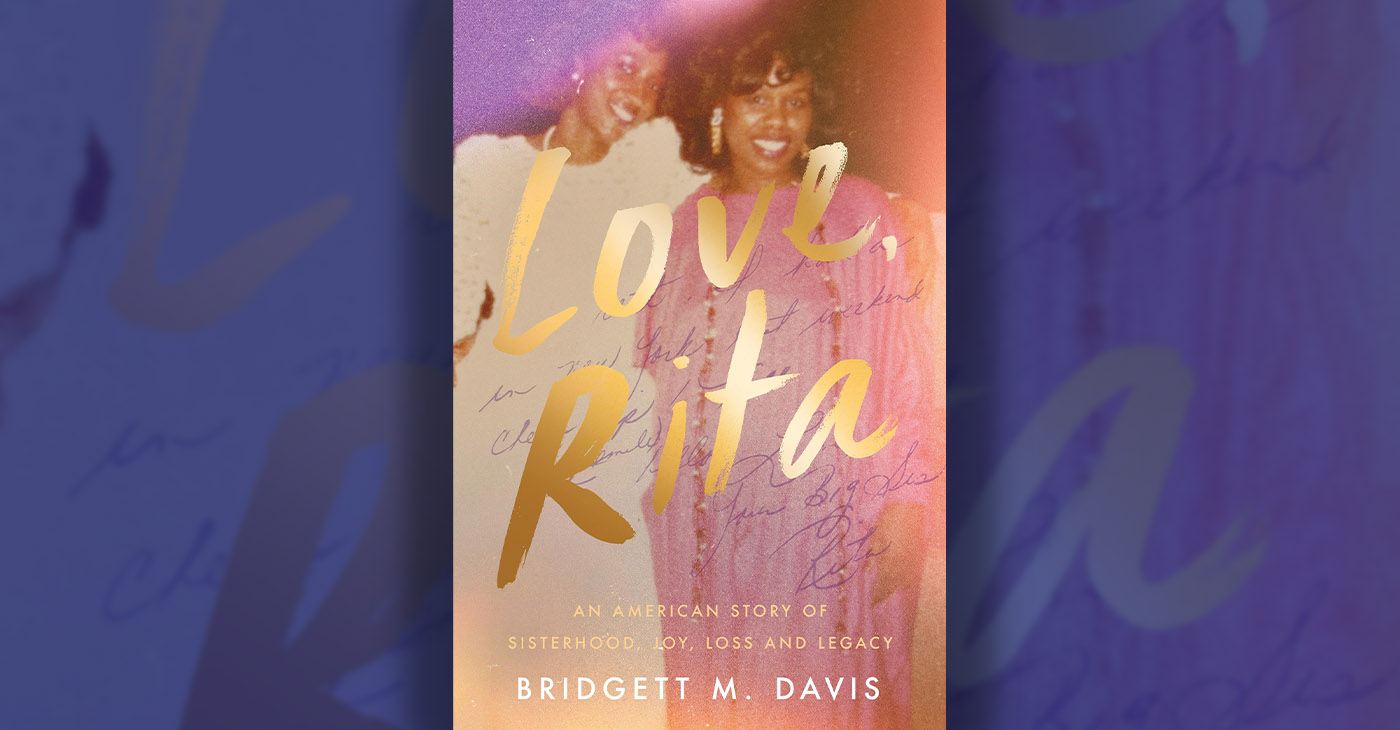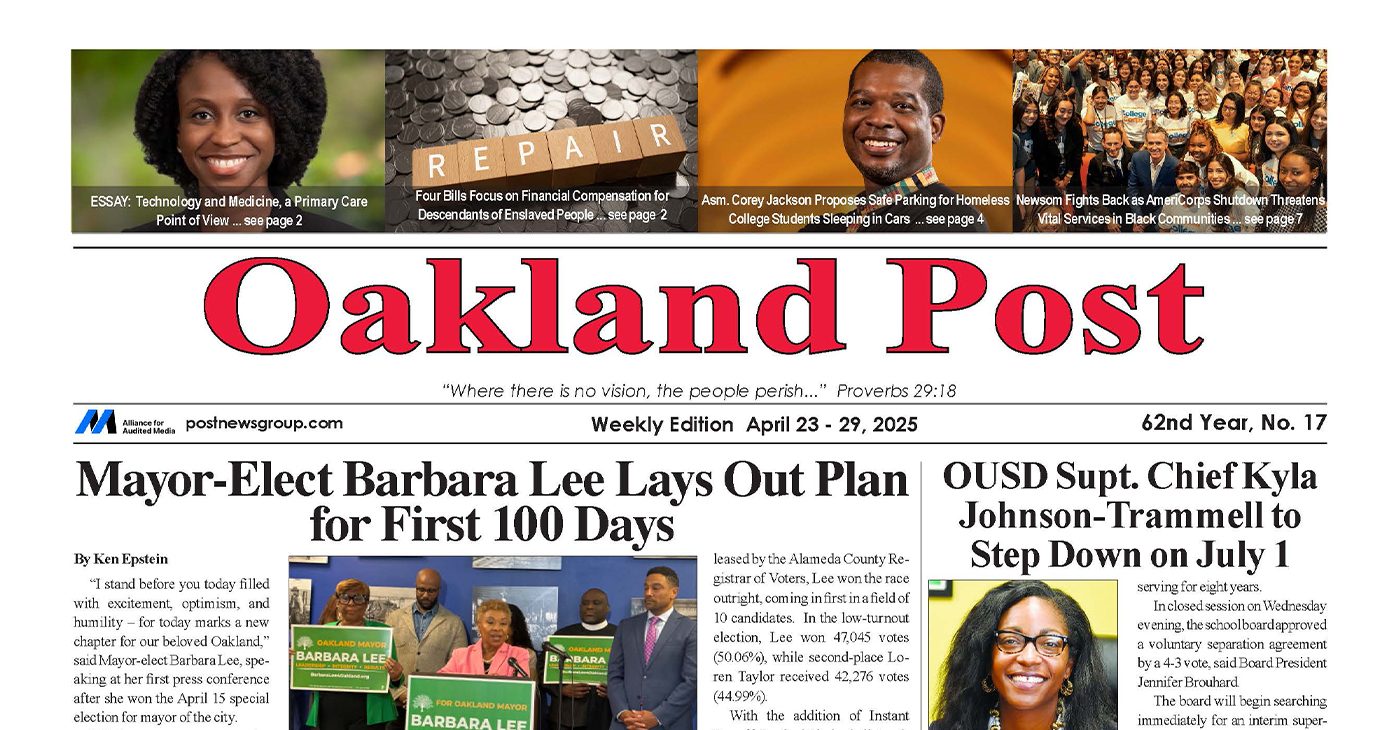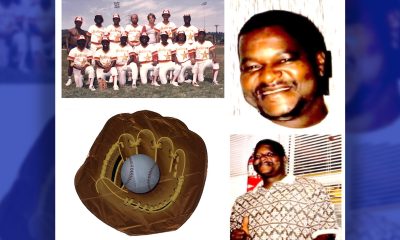Opinion
Commentary: Soulful Softball Sunday Brings Its Magic To Prison

Richmond-area residents participated in a Soulful Softball Sunday Ministry softball game against the San Quentin Hard Timers at the state prison on June 4.
By Rodney Alamo Brown
The people of Richmond have proven in recent years that we can work together to build a safer community that focuses upon opportunity and education.
Together, we began to reach out to our young people and to bring people from all over the city to one place, including the warring factions, in order to successfully shed the city’s past reputation for being one of the nation’s most dangerous.
One important piece in sustaining Richmond’s vastly reduced crime rate is to ensure those who once wreaked havoc on our city can share in these opportunities, an effort that will require both atonement and reconciliation.
On June 4, nearly a dozen Richmond residents including KTVU/FOX and Former Gold Glove Winner Oakland A’s Pitcher Mike Norris joined me at San Quentin State Prison to film an exclusive piece on our Soulful Softball Sunday Ministry.
The prison event is an extension of the award-winning Soulful Softball Sunday that I launched at Nichol Park in Richmond.
The fun, family-friendly gathering of community members connects residents to important resources, encourages healthy living and provides financial assistance to college-bound Richmond students.
Soulful Softball Sunday had a large enough impact at Nichol Park to warrant entering San Quentin. On June 4, about 200 Richmond natives and others attended a fun softball event at the prison during which 11 Richmond-area residents played against the Hard Timers, a San Quentin softball team featuring inmates.
The game was just as it was at Nichol Park: incredible fun. We laughed and enjoyed conversation with the inmates. One of our players hadn’t seen his cousin, an inmate serving a life sentence, since 1988.
They recalled old times. Another player, Reggie Hunt from Richmond, played on the visitors team and led off the game with a base hit. He was all smiles.
That freeing feeling of running to first base would be fleeting. Once the game ended — we lost to the home team, 22-15 — Reggie would return behind the walls to continue his sentence. But Reggie, who led us in prayer after the game, didn’t see it as a loss.
A few players commented that for the duration of the game, San Quentin didn’t feel like a prison: it felt like Richmond with a wall around it.
It wasn’t about the game. It was about a brotherhood and understanding that they may have made a mistake in their life but their life isn’t a mistake.
It’s a calling that we in our Richmond community want to move forward as a peaceful community of opportunity, and that we want everyone in on it: even those who may have contributed to the city’s past woes.
The Soulful Softball Sunday Ministry offers a chance to allow guys I’ve grown up with to express sorrow to the families they’ve destroyed. Even more, establishing such connections allows us to get closer to the reasons members of our community choose a life of crime, and to do what we can to prevent that from happening.
This is Gateway to Healing 101. We do it with sheer love, understanding and commitment. We’ll let you know when we plan to do it again so that you may join in on this new wave.
Rodney Alamo Brown is an award-winning Richmond community advocate who launched Soulful Softball Sunday two years ago.
Arts and Culture
BOOK REVIEW: Love, Rita: An American Story of Sisterhood, Joy, Loss, and Legacy
When Bridgett M. Davis was in college, her sister Rita was diagnosed with lupus, a disease of the immune system that often left her constantly tired and sore. Davis was a bit unfazed, but sympathetic to Rita’s suffering and also annoyed that the disease sometimes came between them. By that time, they needed one another more than ever.

By Terri Schlichenmeyer
Author: Bridgett M. Davis, c.2025, Harper, $29.99, 367 Pages
Take care.
Do it because you want to stay well, upright, and away from illness. Eat right, swallow your vitamins and hydrate, keep good habits and hygiene, and cross your fingers. Take care as much as you can because, as in the new book, “Love, Rita” by Bridgett M. Davis, your well-being is sometimes out of your hands.
It was a family story told often: when Davis was born, her sister, Rita, then four years old, stormed up to her crying newborn sibling and said, ‘Shut your … mouth!’
Rita, says Davis, didn’t want a little sister then. She already had two big sisters and a neighbor who was somewhat of a “sister,” and this baby was an irritation. As Davis grew, the feeling was mutual, although she always knew that Rita loved her.
Over the years, the sisters tried many times not to fight — on their own and at the urging of their mother — and though division was ever present, it eased when Rita went to college. Davis was still in high school then, and she admired her big sister.
She eagerly devoured frequent letters sent to her in the mail, signed, “Love, Rita.”
When Davis was in college herself, Rita was diagnosed with lupus, a disease of the immune system that often left her constantly tired and sore. Davis was a bit unfazed, but sympathetic to Rita’s suffering and also annoyed that the disease sometimes came between them. By that time, they needed one another more than ever.
First, they lost their father. Drugs then invaded the family and addiction stole two siblings. A sister and a young nephew were murdered in a domestic violence incident. Their mother was devastated; Rita’s lupus was an “added weight of her sorrow.”
After their mother died of colon cancer, Rita’s lupus took a turn for the worse.
“Did she even stand a chance?” Davis wrote in her journal.
“It just didn’t seem possible that she, someone so full of life, could die.”
Let’s start here: once you get past the prologue in “Love, Rita,” you may lose interest. Maybe.
Most of the stories that author Bridgett M. Davis shares are mildly interesting, nothing rare, mostly commonplace tales of growing up in the 1960s and ’70s with a sibling. There are a lot of these kinds of stories, and they tend to generally melt together. After about fifty pages of them, you might start to think about putting the book aside.
But don’t. Not quite yet.
In between those everyday tales, Davis occasionally writes about being an ailing Black woman in America, the incorrect assumptions made by doctors, the history of medical treatment for Black people (women in particular), attitudes, and mythologies. Those passages are now and then, interspersed, but worth scanning for.
This book is perhaps best for anyone with the patience for a slow-paced memoir, or anyone who loves a Black woman who’s ill or might be ill someday. If that’s you and you can read between the lines, then “Love, Rita” is a book to take in carefully.
Activism
Faces Around the Bay: Author Karen Lewis Took the ‘Detour to Straight Street’
“My life has been a roller-coaster with an unlimited ride wristband! I was raised in Berkeley during the time of Ron Dellums, the Black Panthers, and People’s Park. I was a Hippie kid, my Auntie cut off all our hair so we could wear the natural styles like her and Angela Davis.

By Barbara Fluhrer
I met Karen Lewis on a park bench in Berkeley. She wrote her story on the spot.
“My life has been a roller-coaster with an unlimited ride wristband! I was raised in Berkeley during the time of Ron Dellums, the Black Panthers, and People’s Park. I was a Hippie kid, my Auntie cut off all our hair so we could wear the natural styles like her and Angela Davis.
I got married young, then ended up getting divorced, raising two boys into men. After my divorce, I had a stroke that left me blind and paralyzed. I was homeless, lost in a fog with blurred vision.
Jesus healed me! I now have two beautiful grandkids. At 61, this age and this stage, I am finally free indeed. Our Lord Jesus Christ saved my soul. I now know how to be still. I lay at his feet. I surrender and just rest. My life and every step on my path have already been ordered. So, I have learned in this life…it’s nice to be nice. No stressing, just blessings. Pray for the best and deal with the rest.
Nobody is perfect, so forgive quickly and love easily!”
Lewis’ book “Detour to Straight Street” is available on Amazon.
Activism
Oakland Post: Week of April 23 – 29, 2025
The printed Weekly Edition of the Oakland Post: Week of April 23 – 29, 2025

To enlarge your view of this issue, use the slider, magnifying glass icon or full page icon in the lower right corner of the browser window.
-

 Activism4 weeks ago
Activism4 weeks agoOakland Post Endorses Barbara Lee
-

 Activism3 weeks ago
Activism3 weeks agoOakland Post: Week of April 2 – 8, 2025
-

 #NNPA BlackPress3 weeks ago
#NNPA BlackPress3 weeks agoTrump Profits, Black America Pays the Price
-

 Activism2 weeks ago
Activism2 weeks agoOakland Post: Week of April 9 – 15, 2025
-

 #NNPA BlackPress3 weeks ago
#NNPA BlackPress3 weeks agoHarriet Tubman Scrubbed; DEI Dismantled
-

 #NNPA BlackPress3 weeks ago
#NNPA BlackPress3 weeks agoTrump Targets a Slavery Removal from the National Museum of African-American History and Culture
-

 #NNPA BlackPress3 weeks ago
#NNPA BlackPress3 weeks agoLawmakers Greenlight Reparations Study for Descendants of Enslaved Marylanders
-

 #NNPA BlackPress3 weeks ago
#NNPA BlackPress3 weeks agoNew York Stands Firm Against Trump Administration’s Order to Abandon Diversity in Schools


























































